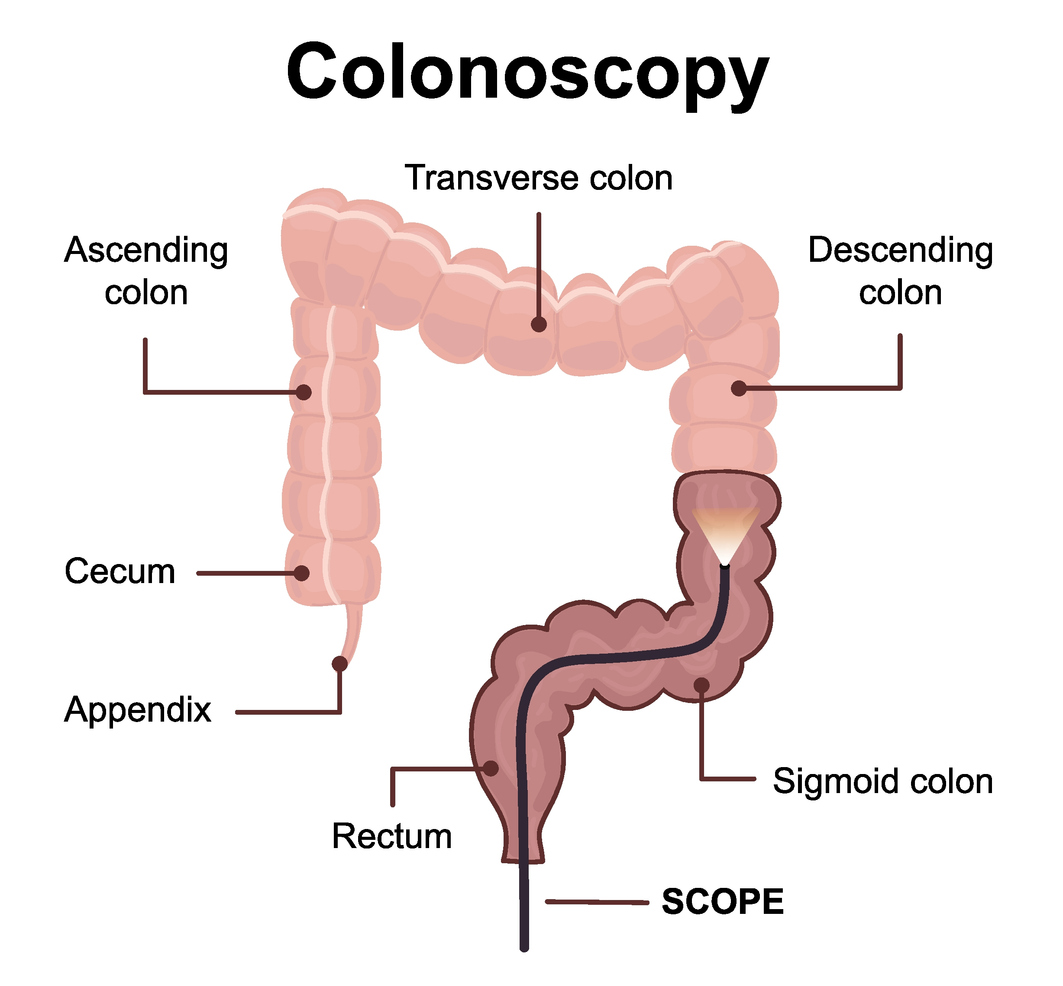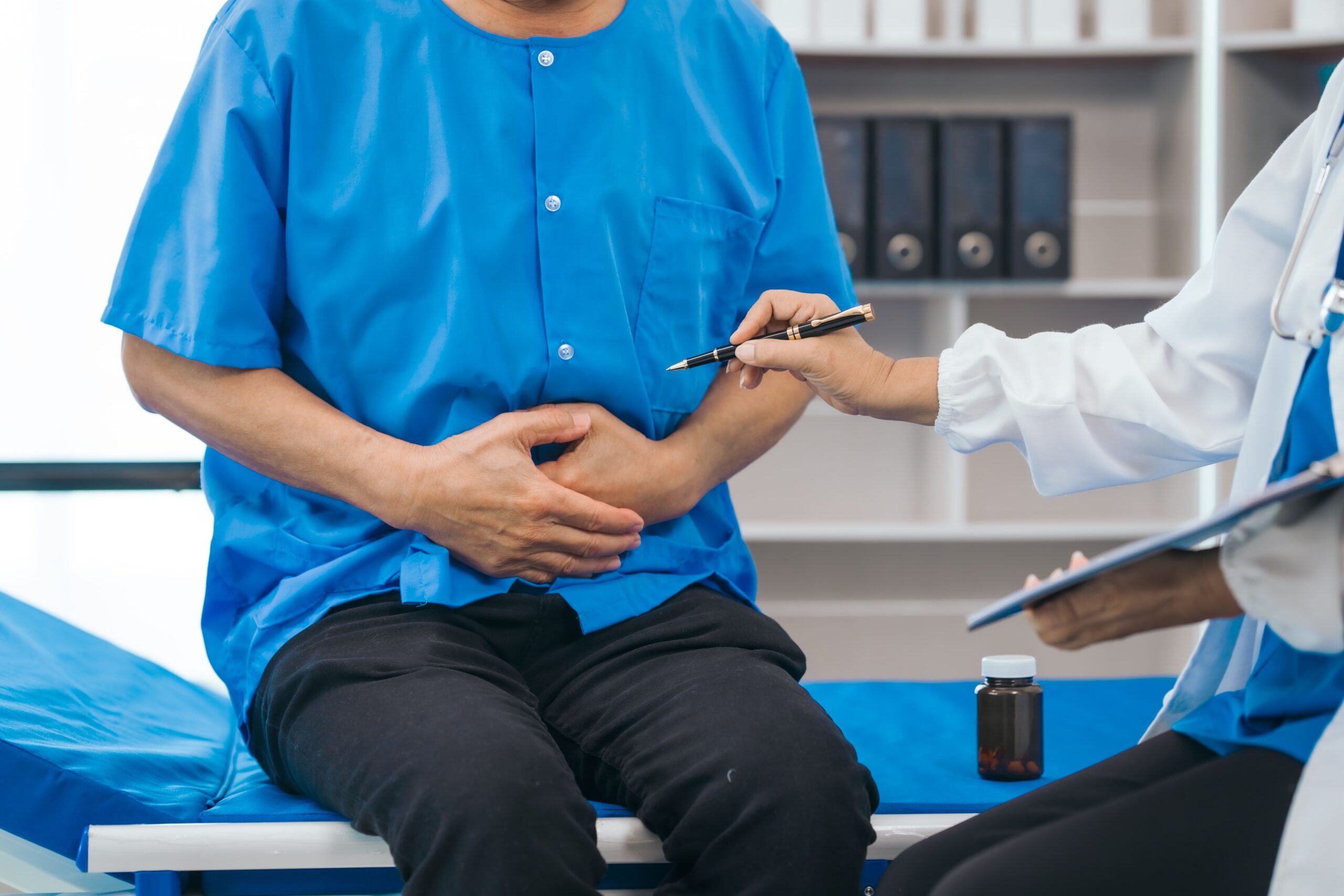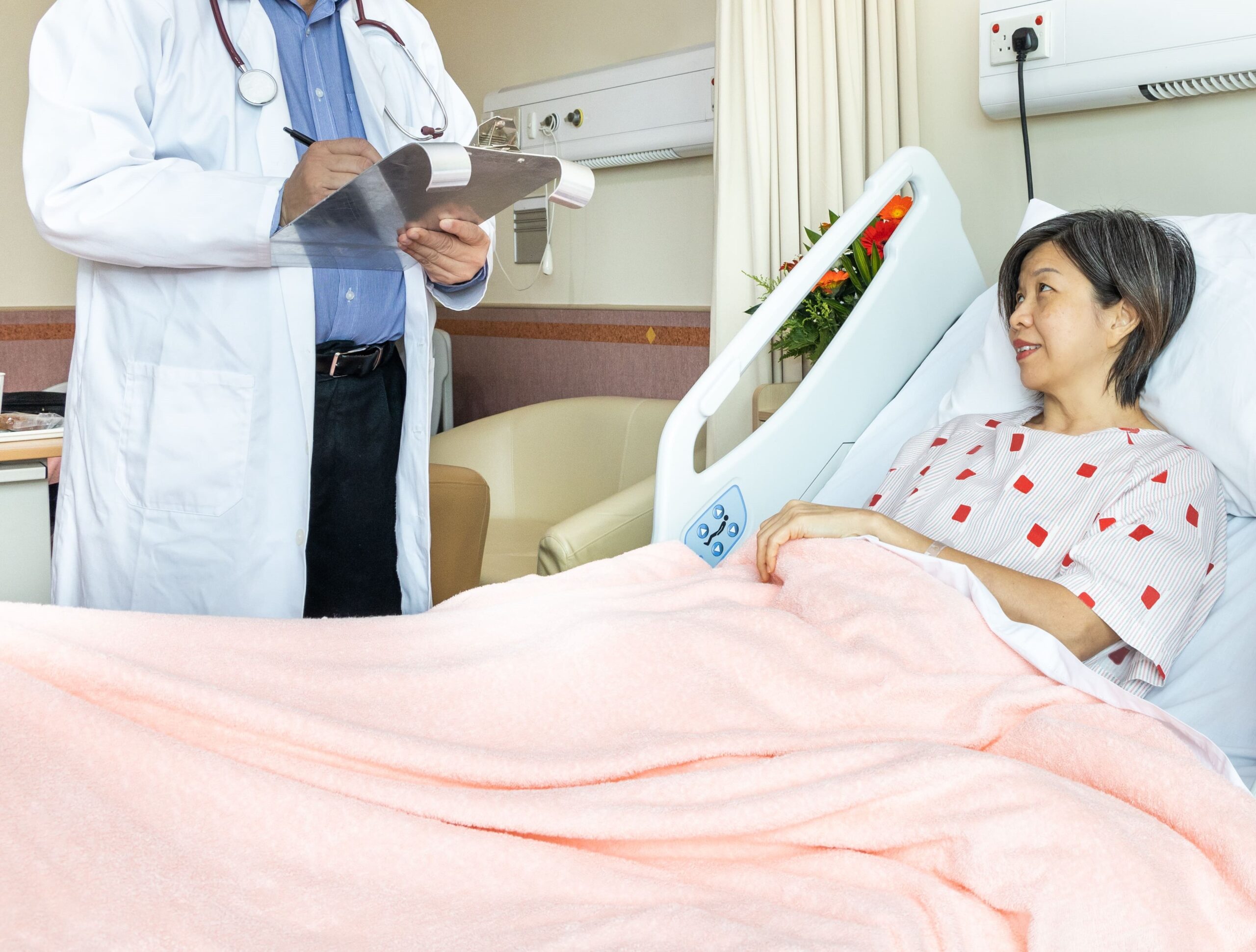Are Your Symptoms
Affecting Your Quality Of Life?
Consult our MOH-accredited specialist for an accurate diagnosis & personalised treatment plan today.




A colonoscopy is a medical procedure that enables doctors to inspect the inner lining of the large intestine, including the colon and rectum.
This examination aids in detecting abnormalities such as inflamed tissue, ulcers, polyps, and cancer. It is used for the early detection and prevention of colorectal cancer, which is the most common cancer in Singapore. It is also useful for diagnosing conditions like Crohn’s disease, ulcerative colitis, and diverticulosis. Colonoscopy also helps in identifying the causes of symptoms such as chronic diarrhoea, abdominal pain, change in bowel habits and rectal bleeding.
Colonoscopy is recommended for several reasons, including screening, diagnosis, and monitoring of various colon and rectum conditions:
Recommended starting at age 50 or earlier for individuals with a family history of colorectal cancer or polyps.
Identifies and removes polyps, lowering the risk of cancer development.
Investigates unexplained symptoms such as chronic diarrhoea, abdominal pain, rectal bleeding, changes in bowel habits, and unexplained weight loss.
Used to further investigate abnormalities found in other tests and to obtain tissue samples if necessary.
Regularly performed for patients with Crohn’s disease or ulcerative colitis to monitor disease progression and assess treatment effectiveness.
Helps determine the cause of iron deficiency anaemia due to potential gastrointestinal bleeding.
Patients with a history of polyps or colorectal cancer may require periodic colonoscopies to monitor for recurrence or new polyps, depending on the doctor’s recommendations.

Proper preparation is required to achieve a clear view of the colon during a colonoscopy. The preparation involves several steps:
Patients should follow a low-fibre diet for a few days before the procedure, avoiding whole grains, nuts, seeds, dried fruits, and raw vegetables. The day before the colonoscopy, patients must switch to a clear-liquid diet, which includes broth, clear juices, and gelatin. Red, purple, or blue liquids should be avoided, as they can discolour the colon lining.
Patients must take a bowel-cleansing agent as prescribed by their doctor. This typically involves drinking a large volume of a special solution or taking oral laxatives to empty the colon. The instructions may vary, but the goal is to have clear or light yellow stool at the end of the preparation.
Patients should inform their doctor about any medications they are taking, including over-the-counter drugs and supplements. Certain medications, such as blood thinners, may need to be adjusted or temporarily discontinued to reduce the risk of bleeding during the procedure.
On the day of the colonoscopy, patients should not eat or drink anything other than necessary medications and a small sip of water.
Due to the sedation used during the procedure, patients must arrange for transportation home following the colonoscopy. It is unsafe to drive or operate machinery for the remainder of the day.
Here is what to expect during a colonoscopy, from arrival at the clinic to the completion of the procedure:

Proper care after a colonoscopy ensures a smooth recovery.
Patients will be monitored in a recovery area until the sedation wears off, usually taking 30 minutes to an hour. Vital signs such as blood pressure, heart rate, and oxygen levels will be checked regularly. Mild bloating or cramping may occur due to the air introduced into the colon during the procedure.
Most patients can resume normal activities the day after the procedure but should rest for the remainder of the day. Mild discomfort, bloating, or gas usually resolves within a few hours. Drinking plenty of fluids helps flush out any remaining bowel-cleansing agent.
Start with light meals and gradually return to a normal diet. Avoid heavy, greasy, or spicy foods initially to prevent gastrointestinal discomfort.
If polyps were removed or biopsies taken, results typically take several days to a week. The doctor will discuss findings and any further steps needed.
Consult our MOH-accredited specialist for an accurate diagnosis & personalised treatment plan today.
Colonoscopy is generally a safe procedure, but as with any medical intervention, it carries some risks and potential complications. Patients should be aware of these risks and discuss any concerns with their doctor before undergoing the procedure.
The potential risks associated with a colonoscopy include:
Potential post-procedure complications include:
Immediate Results: The doctor often shares initial findings right after the procedure. If polyps or abnormal tissues were removed, preliminary information will be provided.
Biopsy and Polyp Removal: Samples sent to the lab for analysis typically take a few days to a week. The doctor will follow up to discuss results and any further actions.
Normal Results: If no abnormalities are found, the next routine screening is usually scheduled in 10 years for average-risk patients.
Abnormal Results: If polyps, inflammation or other abnormal issues are detected, the doctor will recommend further tests, more frequent surveillance, or specific treatments.
Follow-up Appointments: Patients with specific conditions, such as large polyps, multiple polyps, or inflammatory bowel disease, may require more frequent colonoscopies, with a tailored surveillance plan from their doctor.

MBBS (S’pore)|
M.Med (Surgery)|
MRCS (Ireland)|
FRCS (Edin)|
王健名医生
Dr. Calvin Ong is a Senior Consultant with more than 15 years of surgical experience. He specializes in colorectal and general surgery, performing minimally invasive as well as advanced robotic surgeries for benign and malignant colorectal conditions, including inflammatory bowel disease, pelvic floor disorders, colorectal cancer, and hernia repair. He is dedicated to providing high-quality, personalised care for his patients.
Dr. Ong graduated with a Bachelor’s degree in medicine and surgery from the National University of Singapore in 2008 and completed his Masters of Medicine (Surgery) at the same institute. He finished his advanced specialist training in 2016 and became a fellow of the Royal College of Surgeons of Edinburgh.
For Singaporeans, Singapore Permanent Residents and Foreigners. Please speak to our friendly clinic staff about using your insurance plans.

*Extended Panel
Farrer Park Medical Centre
#14-12, 1 Farrer Park Station Road
Singapore 217562
Appointment : (65) 6643 9922
Urgent Care : (65) 8181 2311
Monday to Friday : 9AM – 6PM
Saturday : 9AM – 1PM
Sunday & Public Holidays : By Appointments
Mount Alvernia Hospital
#08-62, Medical Centre D
820 Thomson Road
Singapore 574623
Appointment : (65) 6643 9922
Urgent Care : (65) 8181 2311
Monday to Friday : 9AM – 6PM
Saturday : 9AM – 1PM
Sunday & Public Holidays : By Appointments
Mount Elizabeth Novena Specialist Centre
#10-48/49, 38 Irrawaddy Road
Singapore 329563
Appointment : (65) 6643 9922
Urgent Care : (65) 8181 2311
Monday to Friday : 9AM – 6PM
Saturday : 9AM – 1PM
Sunday & Public Holidays : By Appointments
Parkway East Hospital
#05-08, 319 Joo Chiat Place
Singapore 427989
Appointment : (65) 6643 9922
Urgent Care : (65) 8181 2311
Monday to Friday : 9AM – 6PM
Saturday : 9AM – 1PM
Sunday & Public Holidays : By Appointments
Gleneagles Medical Centre
6 Napier Road #06-16
Singapore 258499
Appointment : (65) 6643 9922
Urgent Care : (65) 8181 2311
Monday to Friday : 9AM – 6PM
Saturday : 9AM – 1PM
Sunday & Public Holidays : By Appointments
Routine screening colonoscopies are recommended every 10 years for people at average risk, beginning at age 50. Those with a family history of colorectal cancer, polyps, or specific conditions may need more frequent screenings based on their doctor’s recommendations.